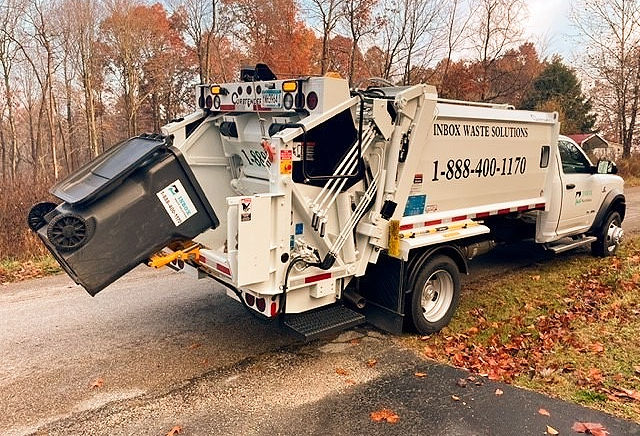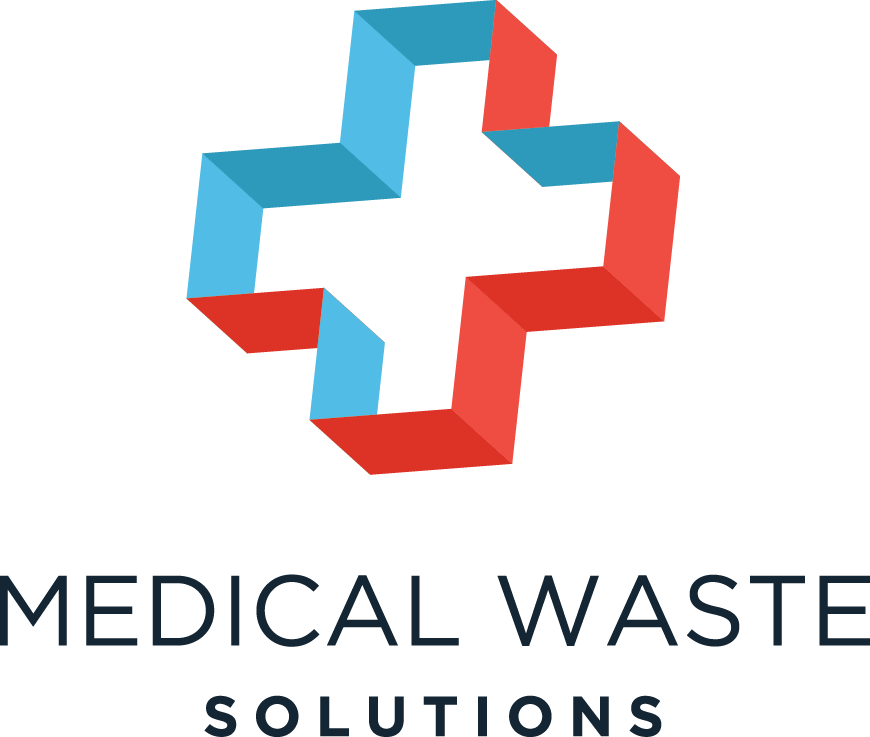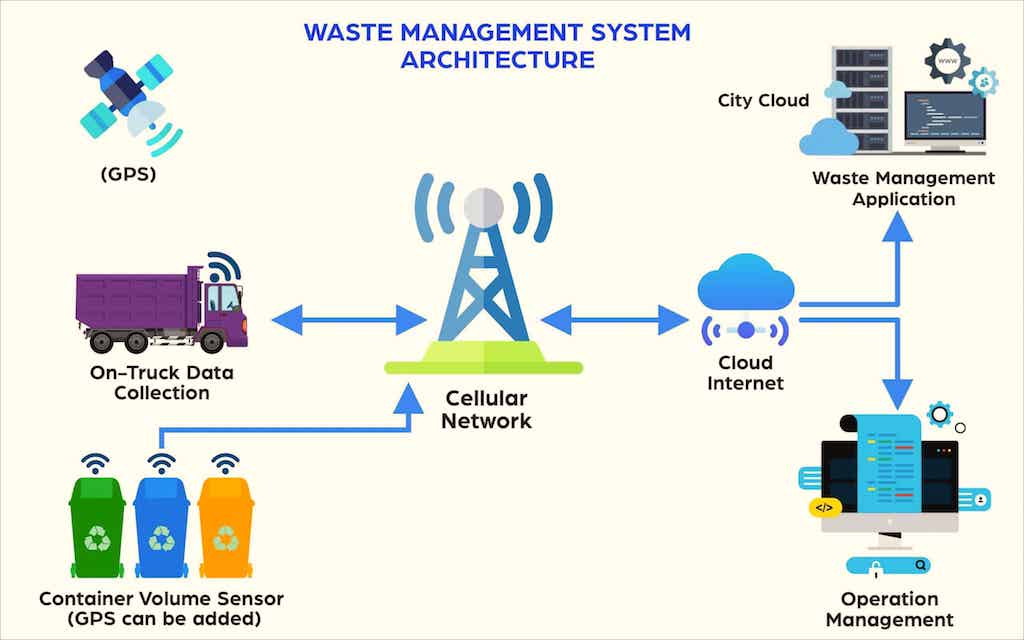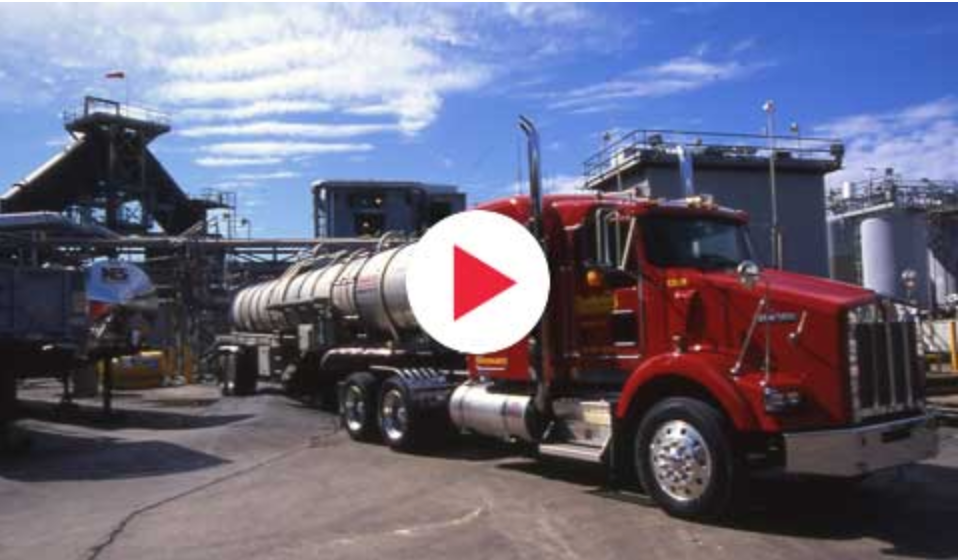Are you tired of your waste management processes causing headaches and inefficiencies? Look no further than Indiana: Professional Solutions for Efficient Waste Management. Designed with the needs of businesses in mind, Indiana offers a comprehensive range of services and solutions to streamline your waste management operations. From waste collection and recycling to disposal and environmental compliance, Indiana leverages cutting-edge technology and industry expertise to ensure that your organization operates at optimal efficiency while minimizing its environmental impact. Say goodbye to waste management woes and hello to Indiana: the solution you’ve been waiting for.

Overview of Waste Management in Indiana
Indiana, located in the Midwest region of the United States, faces several waste management challenges in both urban and rural areas. As the state’s population continues to grow, the demand for efficient waste management becomes increasingly important. This article will explore the current waste management challenges in Indiana, the importance of efficient waste management, and the government initiatives in place to address these issues.
Current Waste Management Challenges
Indiana, like many other states, faces challenges in waste management due to the sheer amount of waste generated by its population. With a diverse range of industries, including manufacturing, agriculture, and mining, the state sees a significant volume of waste. Improper disposal of waste can lead to pollution, environmental degradation, and health hazards.
Additionally, Indiana struggles with recycling rates, as many residents do not have access to recycling programs. This results in valuable resources being sent to landfills instead of being reclaimed. Managing hazardous waste is another challenge, as proper handling and disposal are essential to protect both the environment and public health.
Importance of Efficient Waste Management
Efficient waste management is crucial for several reasons. Firstly, it helps protect the environment by reducing pollution and preserving natural resources. By implementing effective waste management strategies, Indiana can significantly reduce its carbon footprint and mitigate the impacts of climate change.
Secondly, efficient waste management promotes public health and safety. Proper waste disposal prevents the release of harmful chemicals and pathogens into the environment, ensuring clean air, water, and soil. By managing waste effectively, Indiana can safeguard the well-being of its residents.
Lastly, efficient waste management has economic benefits. By implementing recycling programs and promoting sustainable practices, Indiana can create new jobs and stimulate economic growth. Recycling, for example, not only reduces the need for raw materials but also generates revenue through the sale of recycled materials.
Government Initiatives for Waste Management in Indiana
Recognizing the importance of efficient waste management, the government of Indiana has implemented various initiatives to address these challenges. One such initiative is the Indiana Recycling Market Development Program, which provides grants to local governments, businesses, and nonprofit organizations to promote recycling and waste reduction efforts.
The state has also established the Indiana Department of Environmental Management (IDEM), responsible for regulating and overseeing waste management activities. IDEM ensures compliance with environmental regulations, conducts inspections, and provides guidance to waste management facilities.
Moreover, the government encourages collaboration between businesses, waste management providers, and local communities to develop sustainable waste management practices. Through partnerships and incentives, Indiana aims to promote responsible waste disposal habits, increase recycling rates, and reduce waste generation.

Waste Reduction Strategies
To tackle waste management challenges effectively, Indiana has implemented various waste reduction strategies that focus on recycling, composting, sustainable packaging, and food waste reduction, among other approaches.
Implementing Recycling Programs
One of the key waste reduction strategies is implementing comprehensive recycling programs throughout the state. This includes curbside recycling pickup, drop-off centers, and recycling education campaigns. By expanding access to recycling facilities and increasing public awareness, Indiana encourages residents to recycle and divert recyclable materials from landfills.
Encouraging Composting
Composting is an effective way to reduce organic waste and create nutrient-rich soil amendments. Indiana promotes composting through educational programs and community composting initiatives. By encouraging residents to compost their food scraps and yard waste, the state can divert a significant amount of waste from landfills and contribute to sustainable agriculture.
Promoting Sustainable Packaging
Indiana recognizes the environmental impact of excessive packaging waste and encourages businesses to adopt sustainable packaging practices. This includes minimizing packaging materials, using recyclable or biodegradable materials, and promoting innovative packaging alternatives. By reducing packaging waste, Indiana aims to decrease the amount of non-recyclable materials sent to landfills.
Reducing Food Waste
Food waste is a significant contributor to landfill waste. Indiana addresses this issue by promoting food waste reduction efforts, such as community food sharing programs and awareness campaigns. By educating individuals and businesses about the importance of minimizing food waste and implementing proper food storage and donation practices, Indiana aims to reduce the environmental and economic impacts associated with food waste.
Implementing Waste Audits
To better understand waste generation patterns and identify areas for improvement, Indiana encourages businesses and institutions to conduct waste audits. These audits involve assessing the types and quantities of waste produced, identifying opportunities for waste reduction and recycling, and implementing measures to improve overall waste management practices.
By implementing these waste reduction strategies, Indiana aims to minimize waste generation, increase recycling rates, and promote sustainable practices among residents and businesses.
Waste Collection and Transportation
Efficient waste collection and transportation play a crucial role in ensuring a well-functioning waste management system. Indiana employs various waste collection methods, maximizes efficiency in waste collection routes, utilizes technology for waste collection, and collaborates with local waste collection companies.
Different Types of Waste Collection Methods
Indiana employs different waste collection methods, depending on the type of waste generated and the needs of the community. These methods include curbside pickup, commercial waste collection, and dumpster services. Curbside pickup is commonly used for household waste, while commercial waste collection serves businesses and institutions. Dumpster services are provided for construction and demolition waste or other large-scale waste generation activities.
Efficiency in Waste Collection Routes
Efficiency in waste collection routes is essential to minimize fuel consumption, reduce traffic congestion, and optimize waste collection schedules. Indiana uses advanced routing software and logistics tools to determine the most efficient collection routes based on factors such as waste volume, geographical location, and traffic patterns. By optimizing waste collection routes, the state can reduce costs and environmental impacts associated with waste transportation.
Use of Technology for Waste Collection
Indiana leverages technology to enhance waste collection practices. This includes the use of automated collection vehicles equipped with onboard scales and GPS tracking systems. These technologies ensure accurate waste measurement, efficient collection, and real-time monitoring of collection routes. Additionally, the use of sensors in waste bins and containers enables waste management companies to optimize collection schedules based on fill levels, reducing unnecessary pickups and improving overall waste management efficiency.
Collaboration with Local Waste Collection Companies
To effectively manage waste, Indiana collaborates with local waste collection companies. These partnerships ensure that waste collection services are efficiently provided to both residential and commercial areas. By working together, the government and waste collection companies can align their efforts, share resources, and optimize waste management practices.
Transportation of Waste to Treatment Facilities
Once waste is collected, it is transported to treatment facilities for processing. Indiana ensures the safe transportation of waste through regulatory compliance and oversight. Waste is transported in vehicles specifically designed for this purpose, with appropriate containment measures to prevent any leaks or spills during transit. By adhering to strict transportation regulations, Indiana protects the environment and public health while maintaining efficient waste management practices.

Treatment and Disposal Methods
Once waste is collected, it undergoes various treatment and disposal methods to minimize environmental impacts. Indiana employs landfill management and regulations, incineration and waste-to-energy technologies, wastewater treatment, hazardous waste treatment facilities, and promotes the concept of a circular economy.
Landfill Management and Regulations
Landfills are a common method of waste disposal, but proper management is essential to minimize environmental contamination. Indiana has specific regulations in place for landfill management, including guidelines for site selection, design, operation, and closure. These regulations aim to protect groundwater, air quality, and nearby ecosystems. Periodic inspections and monitoring are conducted to ensure compliance with these regulations.
Incineration and Waste-to-Energy Technologies
Incineration and waste-to-energy technologies are used in Indiana to convert waste into usable energy or heat. Incineration involves the combustion of waste at high temperatures, while waste-to-energy technologies utilize various processes like anaerobic digestion or gasification to generate electricity or heat. These technologies not only reduce the volume of waste going to landfills but also provide a sustainable energy source.
Wastewater Treatment
Wastewater treatment is an essential aspect of waste management, particularly for industrial and municipal wastewater. Indiana regulates the treatment of wastewater through specific guidelines to ensure that contaminants are removed before the treated water is discharged into the environment. This ensures the protection of water bodies and the prevention of water pollution.
Hazardous Waste Treatment Facilities
Due to the presence of various industries in Indiana, proper management of hazardous waste is crucial. Hazardous waste treatment facilities are designed to safely handle and dispose of toxic substances. These facilities comply with strict regulations to minimize environmental and health risks associated with hazardous waste. They employ specialized techniques such as chemical treatment, stabilization, or incineration to neutralize or destroy hazardous materials.
Promoting Circular Economy
Indiana promotes the concept of a circular economy, which focuses on reducing waste generation, reusing materials, and recycling to create a closed-loop system. By promoting initiatives such as extended producer responsibility, product stewardship, and the development of markets for recycled materials, Indiana encourages businesses and consumers to embrace more sustainable practices. This approach reduces waste generation and promotes resource conservation.
By implementing these treatment and disposal methods, Indiana manages waste effectively while minimizing environmental impacts and supporting a more sustainable future.
The Role of Professional Waste Management Companies
Professional waste management companies play a critical role in implementing efficient waste management practices. Their expertise, ability to comply with environmental regulations, cost-effectiveness, and environmental impact assessments are some of the reasons why outsourcing waste management services is beneficial.
Benefits of Outsourcing Waste Management Services
Outsourcing waste management services to professional companies offers several benefits. Firstly, it allows organizations and communities to focus on their core activities while leaving waste management responsibilities in the hands of experts. This frees up time, resources, and manpower to concentrate on essential tasks.
Secondly, professional waste management companies have the experience and knowledge required to handle waste effectively. They possess specialized equipment, technologies, and techniques to collect, transport, treat, and dispose of waste safely and efficiently. By outsourcing waste management, organizations can ensure that waste is managed according to the highest standards.
Specialized Waste Management Expertise
Professional waste management companies have expertise in managing different types of waste, including municipal, industrial, hazardous, and medical waste. They have trained personnel who understand the characteristics and disposal requirements of each waste stream. Their specialized knowledge ensures that waste is handled in compliance with regulations and industry best practices.
Compliance with Environmental Regulations
Environmental regulations regarding waste management are constantly evolving. Professional waste management companies are well-versed in these regulations and stay up to date with any changes. By outsourcing waste management, organizations can be confident that their waste will be handled in compliance with all applicable regulations, reducing the risk of legal and environmental liabilities.
Cost-effectiveness of Professional Solutions
Contrary to popular belief, outsourcing waste management services can be cost-effective for organizations. Professional waste management companies have the necessary infrastructure and resources to handle waste efficiently, reducing operational costs for organizations. Additionally, these companies can analyze waste streams and implement waste reduction strategies, ultimately leading to cost savings and improved resource management.
Environmental Impact Assessments
Professional waste management companies conduct environmental impact assessments to evaluate the potential environmental effects of waste management activities. These assessments help identify any potential risks or areas for improvement, ensuring that waste management practices are environmentally sustainable. By outsourcing waste management to companies that prioritize environmental impact assessments, organizations can minimize their ecological footprint and contribute to a healthier environment.
Professional waste management companies play a vital role in implementing efficient waste management practices. Their expertise, compliance with environmental regulations, cost-effectiveness, and focus on environmental impact assessments make them valuable partners in achieving sustainable waste management goals.

Innovative Technologies for Waste Management
Technological advancements have revolutionized waste management practices, making them more efficient, sustainable, and data-driven. Indiana embraces innovative technologies to optimize waste management operations and enhance environmental sustainability.
Smart Waste Management Systems
Smart waste management systems utilize sensors, data analytics, and Internet of Things (IoT) technologies to monitor waste levels, optimize collection routes, and improve overall operational efficiency. These systems enable waste management companies to track fill levels of waste bins in real-time, schedule pickups only when necessary, and allocate resources in a more efficient manner. By using smart waste management systems, Indiana can reduce collection costs, minimize environmental impacts, and enhance service quality.
Sensor-based Waste Sorting
Sensor-based waste sorting technologies are transforming the recycling industry. These systems utilize artificial intelligence, machine learning, and sensors to identify and sort recyclable materials from mixed waste streams. By accurately separating different types of waste, valuable resources can be reclaimed for recycling, reducing the amount of waste sent to landfills. Indiana can benefit from sensor-based waste sorting technologies to increase recycling rates and facilitate more effective waste management.
Advanced Recycling Technologies
Advanced recycling technologies are innovations that enable the recycling of materials that were once considered non-recyclable. These technologies use various methods such as chemical recycling, biological processes, or advanced sorting techniques to recover valuable materials from complex waste streams. By adopting and investing in advanced recycling technologies, Indiana can enhance its recycling capabilities and reduce dependency on virgin materials, leading to a more sustainable and circular economy.
Waste-to-Energy Innovations
Waste-to-energy innovations convert waste into energy or heat through processes such as incineration, anaerobic digestion, or gasification. These technologies minimize the volume of waste going to landfills while simultaneously generating renewable energy. Indiana can leverage waste-to-energy innovations to not only manage waste efficiently but also contribute to its clean energy goals and reduce greenhouse gas emissions.
Data Analytics for Waste Management Optimization
Data analytics plays a crucial role in waste management optimization. By analyzing waste generation patterns, recycling rates, and operational data, Indiana can identify areas for improvement and implement targeted waste reduction strategies. Data analytics enable waste management companies to optimize collection routes, improve resource allocation, and make data-driven decisions. By harnessing the power of data analytics, Indiana can achieve cost savings, enhance operational efficiency, and promote sustainable waste management practices.
By embracing innovative technologies, Indiana can optimize waste management practices, improve recycling rates, reduce environmental impacts, and create a more sustainable future.
Collaboration between Businesses and Waste Management Providers
Collaboration between businesses and waste management providers is essential to achieve sustainable waste management practices. By working together, businesses and waste management providers can share resources, implement waste reduction initiatives, promote effective waste segregation, and share best practices for waste management.
Partnerships for Sustainable Waste Management
Partnerships between businesses and waste management providers are key to achieving sustainable waste management goals. By collaborating, organizations can join forces to develop innovative solutions, share knowledge and resources, and create a coordinated approach towards waste management. Partnerships may include waste management service contracts, joint projects, or cooperative initiatives to tackle specific waste management challenges.
Waste Reduction Initiatives in Industries
Industries generate a significant amount of waste, and their active participation in waste reduction initiatives is crucial. Businesses can implement practices such as lean manufacturing, waste audits, and reducing material waste in production processes. By minimizing waste generation and embracing sustainable practices, industries in Indiana can contribute to a circular economy, reduce environmental impacts, and enhance resource efficiency.
Joint Efforts for Effective Waste Segregation
Effective waste segregation is essential for efficient waste management. Businesses, in collaboration with waste management providers, can implement proper waste segregation practices, including separate collection of recyclables, organic waste, and hazardous materials. By working together, businesses and waste management providers can educate employees, establish clear waste segregation guidelines, and ensure that waste is disposed of in the appropriate streams, reducing contamination and enhancing recycling efforts.
Promoting Waste Management Best Practices
Businesses and waste management providers can collaborate to promote waste management best practices within the community. This can involve organizing workshops, seminars, or training sessions to educate individuals about the importance of responsible waste disposal and recycling. By actively engaging the community, businesses and waste management providers can raise awareness, change attitudes and behaviors, and inspire individuals to adopt sustainable waste management practices.
Sharing Resources for Waste Management
Pooling resources and infrastructure can enhance waste management capabilities. Businesses and waste management providers can coordinate efforts to establish shared recycling centers, waste transfer stations, or other waste management facilities. This reduces redundancies, optimizes resource allocation, and improves the overall efficiency of waste management operations. By sharing resources, businesses and waste management providers can achieve cost savings and foster collaboration towards sustainable waste management.
By collaborating, businesses and waste management providers can create a more sustainable waste management system, promote responsible waste disposal practices, and drive positive change within the community.

Education and Awareness Programs
Education and awareness programs are essential for fostering a culture of sustainable waste management. Indiana recognizes the importance of educating individuals, students, and communities about responsible waste disposal habits, recycling practices, and the environmental impacts of waste.
Environmental Education in Schools
Integrating environmental education into school curricula enables students to learn about waste management, recycling, and sustainable practices from an early age. By incorporating lessons on waste reduction, recycling, and conservation, Indiana can empower the next generation to become environmentally conscious citizens. Environmental education programs can also involve field trips to recycling centers or waste treatment facilities, providing students with firsthand knowledge of waste management processes.
Community Engagement and Awareness Campaigns
Engaging the community through awareness campaigns can significantly impact waste management practices. Indiana can organize community events, workshops, or public forums to educate residents about sustainable waste management practices, the importance of recycling, and the environmental benefits of reducing waste. These campaigns can raise awareness, change behaviors, and inspire individuals to play an active role in waste reduction efforts.
Promoting Responsible Waste Disposal Habits
Promoting responsible waste disposal habits is crucial for minimizing environmental impacts. Indiana can encourage residents to properly dispose of waste by providing clear guidelines on waste segregation, recyclable materials, and hazardous waste drop-off locations. By promoting responsible waste disposal habits, such as avoiding littering and preventing illegal dumping, Indiana can maintain cleaner communities and protect natural habitats.
Public Participation in Waste Management Initiatives
Public participation is essential for the success of waste management initiatives. Indiana can encourage public involvement in decision-making processes, such as reviewing waste management plans or providing feedback on waste management practices. By giving residents a voice, Indiana can ensure that waste management strategies align with community needs and aspirations.
Incentives for Waste Reduction and Recycling
Incentives can be effective motivators for waste reduction and recycling. Indiana can implement incentive programs, such as rebates or tax incentives, to encourage businesses and individuals to reduce waste, increase recycling rates, or support sustainable practices. These incentives can act as catalysts for behavior change and incentivize the adoption of sustainable waste management practices.
By implementing education and awareness programs, Indiana can empower individuals, communities, and businesses to become active participants in sustainable waste management practices. Education and awareness are key to fostering a sense of responsibility, accountability, and environmental stewardship.
Monitoring and Enforcement of Waste Management Regulations
Monitoring and enforcing waste management regulations are vital to ensure compliance and maintain a high standard of waste management practices. Indiana’s environmental agencies play a crucial role in monitoring waste management activities, conducting compliance inspections, developing waste management standards, tracking and reporting data, and incorporating community feedback mechanisms.
Role of Environmental Agencies
Indiana’s environmental agencies, such as the Indiana Department of Environmental Management (IDEM), are responsible for overseeing waste management activities and regulating compliance with environmental regulations. These agencies develop waste management policies, issue permits, conduct inspections, and provide guidance to waste management facilities to ensure operations align with environmental standards.
Compliance Inspections and Penalties
Regular compliance inspections are conducted by environmental agencies to ensure that waste management facilities and organizations adhere to environmental regulations. Violations of these regulations can result in penalties, fines, or legal consequences. Compliance inspections play a crucial role in maintaining accountability and upholding environmental standards throughout Indiana.
Development of Waste Management Standards
Indiana’s environmental agencies work closely with industry experts, researchers, and stakeholders to develop waste management standards. These standards provide guidelines and parameters for waste management practices, including collection, treatment, disposal, and recycling. By establishing standardized practices, Indiana ensures that waste management activities are consistent, efficient, and aligned with the state’s environmental objectives.
Tracking and Reporting of Waste Management Data
Accurate tracking and reporting of waste management data are essential for understanding waste generation patterns, monitoring progress, and identifying areas for improvement. Indiana’s environmental agencies require waste management facilities and organizations to report data on waste volumes, recycling rates, and disposal methods. This data contributes to the development of waste management strategies and informs policy decisions.
Community Feedback Mechanisms
Engaging the community in waste management policies and decisions enhances transparency and ensures that local perspectives are considered. Indiana’s environmental agencies can establish community feedback mechanisms, such as public hearings or comment periods, to obtain input from residents and stakeholders. This input informs waste management strategies and helps address community concerns, fostering a sense of ownership and collaboration.
By monitoring and enforcing waste management regulations, Indiana’s environmental agencies contribute to maintaining high standards of waste management practices, protecting the environment, and safeguarding public health.
Success Stories and Case Studies
Highlighting success stories and case studies is an effective way to showcase the achievements and lessons learned in waste management. These examples serve as inspiration, provide valuable insights, and encourage the adoption of sustainable practices.
Notable Waste Management Achievements in Indiana
Indiana has celebrated noteworthy waste management achievements in recent years. Examples of these achievements include significant improvements in recycling rates, successful waste reduction initiatives by various industries, and the adoption of innovative technologies for waste management. These success stories inspire other businesses, organizations, and communities to follow suit and implement similar practices.
Case Studies of Efficient Waste Management Practices
Examining case studies of efficient waste management practices in Indiana can provide valuable insights into successful waste management strategies. These case studies may showcase organizations that have implemented comprehensive recycling programs, achieved significant waste reduction, or embraced innovative technologies. By analyzing these successful practices, other entities can learn best practices and replicate them in their own waste management efforts.
Recognizing Environmental Leadership of Organizations
Several organizations in Indiana have demonstrated environmental leadership through their commitment to sustainable waste management practices. Recognizing and showcasing these organizations can inspire others to follow their example. By highlighting the efforts and achievements of environmentally responsible businesses, Indiana can foster a culture of environmental stewardship and encourage more sustainable waste management practices.
Lessons Learned from Successful Waste Management Projects
Success stories and case studies offer important lessons learned from successful waste management projects. These lessons may include the importance of comprehensive planning, community engagement, stakeholder collaboration, or the adoption of innovative technologies. By sharing these lessons, Indiana can contribute to continuous improvement in waste management practices, enabling others to learn from both successes and challenges.
Sharing Best Practices for Waste Reduction
Sharing best practices and success stories creates a platform for knowledge exchange and collaboration among waste management professionals and stakeholders. Indiana can establish platforms, such as conferences, workshops, or online resources, to share best practices for waste reduction, recycling, and sustainable waste management. These platforms facilitate learning, encourage innovation, and foster cooperation towards common waste management goals.
By highlighting success stories, case studies, and lessons learned, Indiana can inspire, educate, and empower individuals, organizations, and communities to adopt efficient and sustainable waste management practices.
In conclusion, efficient waste management is of utmost importance in Indiana. The state faces several waste management challenges but is taking proactive steps to address them. Government initiatives, waste reduction strategies, efficient waste collection and transportation, treatment and disposal methods, collaboration between businesses and waste management providers, education and awareness programs, monitoring and enforcement of waste management regulations, and the adoption of innovative technologies are all essential components of a comprehensive waste management system. By embracing these strategies, Indiana can achieve efficient waste management, protect the environment, promote public health, and create a sustainable and vibrant future.
